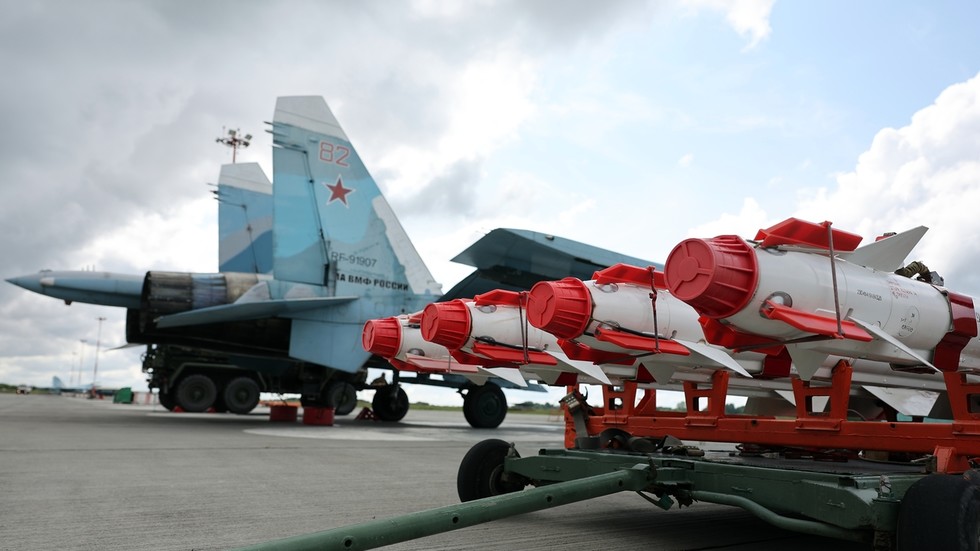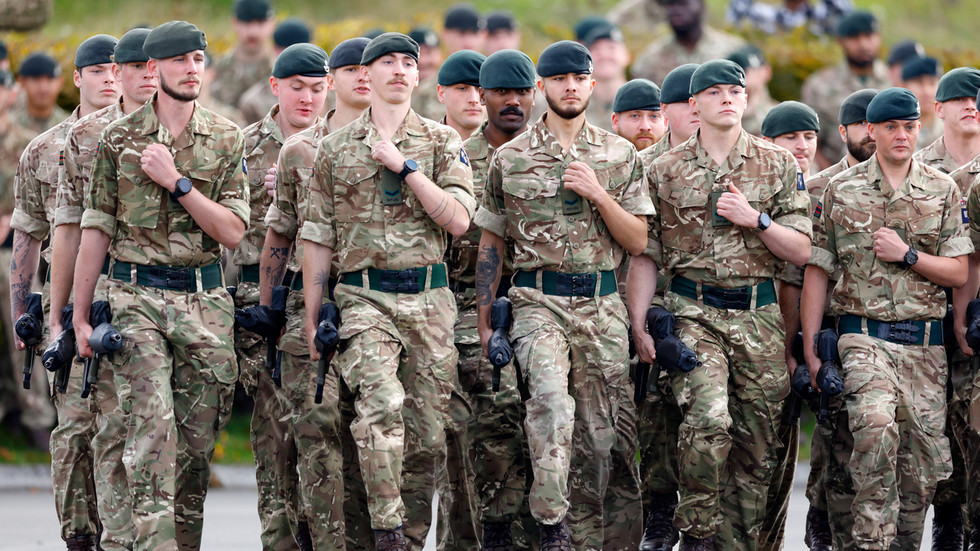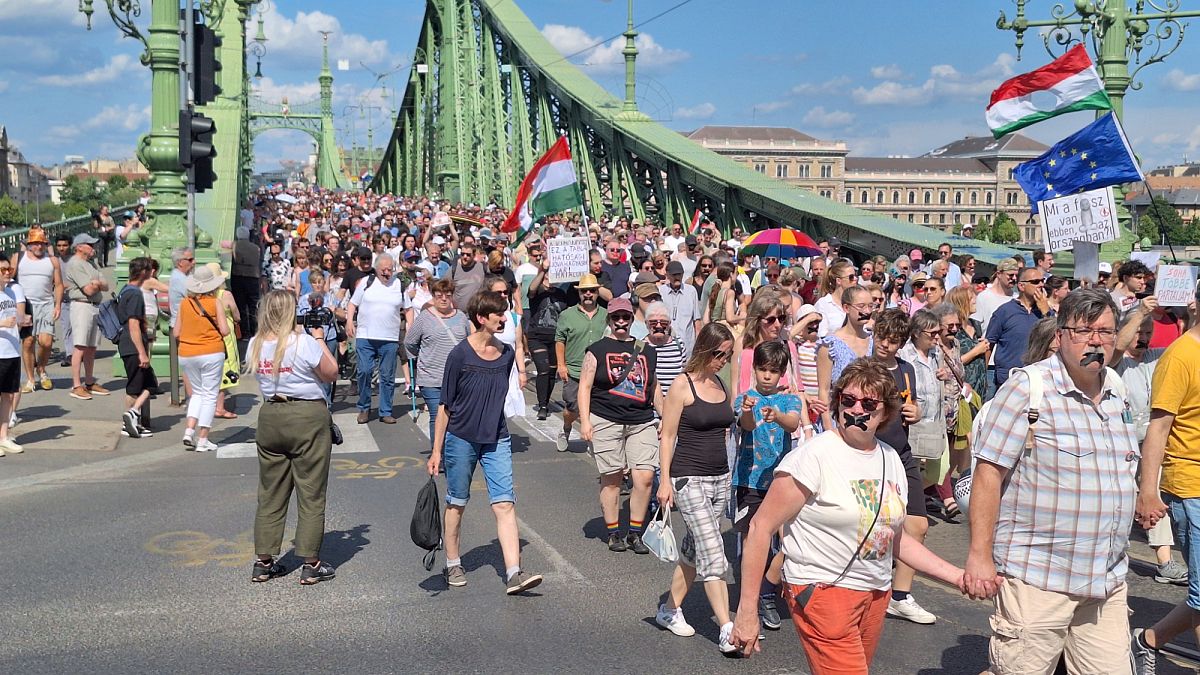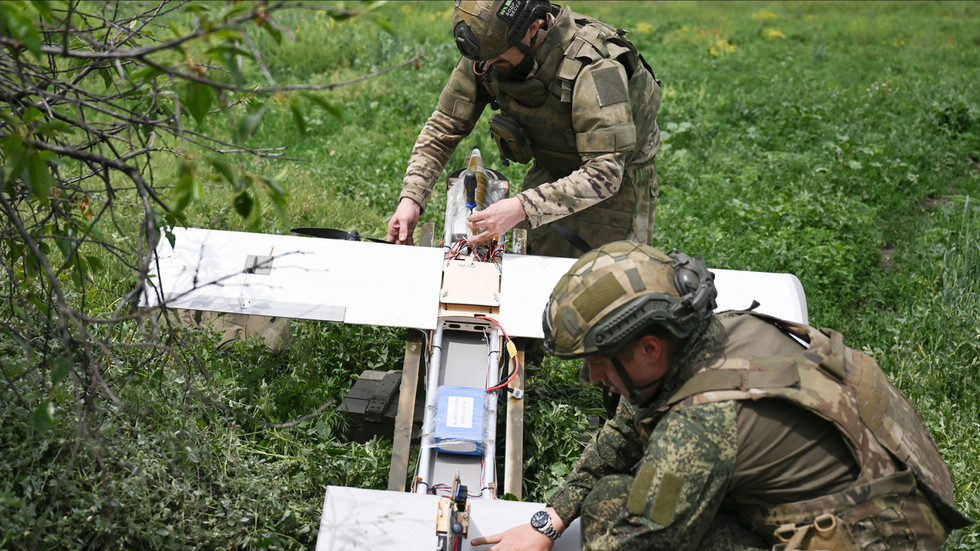05/16/2025May 16, 2025
World Bank says Saudi Arabia and Qatar paid off Syria's debt
The World Bank announced that Saudi Arabia and Qatar have paid off the $15.5 million (€13.9 million) that Syria owed, clearing the way for Damascus to take out new loans.
The bank halted its operations in Syria when the civil war broke out in 2011, which prevented the country from accessing its development loans, grants, and technical expertise.
"We are pleased that the clearance of Syria's arrears will allow the World Bank Group to reengage with the country and address the development needs of the Syrian people," the World Bank said in a statement.
In added that "the first project in our reengagement with Syria is centered on access to electricity."
Months after an insurgency unseated former Syrian president Bashar Assad and ended the civil war that decimated much of the country's infrastructure, severe electricity shortages continue to plague Syria.
The United Nations estimates that 90% of Syrians live in poverty, with state-supplied electricity amounting to as little as two hours per day.
Civil war has left Syria with 'immense need for assistance'
https://p.dw.com/p/4uVRK
Skip next section Iran says no US nuclear deal proposal has been received05/16/2025May 16, 2025
Iran says no US nuclear deal proposal has been received
Iran's top diplomat said that his country hadn't received any proposal from the US over a possible nuclear deal despite the US president saying otherwise.
"Iran has not received any written proposal from the United States, whether directly or indirectly," Foreign Minister Seyed Abbas Araghchi posted on X.
"In the meantime, the messaging we—and the world—continue to receive is confusing and contradictory. Iran nonetheless remains determined and straightforward: Respect our rights and terminate your sanctions, and we have a deal," Araghchi said.
He went on to say that there would be no scenario that would see Iran abandoning "its hard-earned right to enrichment for peaceful purposes."
The comments come a few hours after US President Donald Trump said Iran received had a proposal from Washington.
https://p.dw.com/p/4uV77
Skip next section Houthi-run media report 'Israeli strikes' on Hodeida05/16/2025May 16, 2025
Houthi-run media report 'Israeli strikes' on Hodeida
Houthi-run media has reported "Israeli strikes" targeting Hodeida along Yemen's Red Sea coast.
There were also strikes on the port of Salif further north, according to the Houthi-run Al Masirah TV broadcaster. There has been no immediate response from Israel's military, although the Israel Defense Forces (IDF) earlier this week called for civilians to evacuate the rebel-held port city.
Israel has launched numerous retaliatory strikes on Iran-backed Houthi targets and intercepted a missile launched by the militant group on Thursday.
Earlier this month, the grounds of Ben Gurion International Airport outside of Tel Aviv were struck by a Houthi missile.
The Houthis have launched numerous attacks on Israel since the start of the Israel-Hamas war in Gaza after a 2023 Hamas-led terror attack killed nearly 1,200 people in Israel, with more than 250 others taken hostage.
Israel's ongoing military offensive in Gaza, which came in retaliation for the October 2023 terror attacks orchestrated by Hamas, has killed over 53,000 people.
Most of those killed have been civilians, according to figures by the Hamas-run Health Ministry in the strip, which the United Nations considers reliable.
https://p.dw.com/p/4uUy2
Skip next section Iran, E3 talks in Istanbul conclude05/16/2025May 16, 2025
Iran, E3 talks in Istanbul conclude
Nuclear talks in Istanbul between deputy foreign ministers from Iran and three European powers — the UK, France and Germany — have concluded.
Iran's Kazem Gharibabadi said on X that the talks with the E3 — the European signatories to the 2015 Iran nuclear deal with the US, China and Russia — had seen the representatives "exchange views" and discuss "the latest status of the indirect nuclear negotiations and the lifting of sanctions."
Gharibabadi added that Iran was willing to meet with the E3 again to continue the negotiations, which have picked up pace in recent months.
After Friday's meeting, Gharibabadi said that "Iran and the three European countries are determined to sustain and make optimal use of diplomacy".
Ahead of the talks on Friday, China — which has also held its own discussions with Tehran over its nuclear program — said it is "committed to promoting a political and diplomatic settlement" of the issue.
China's Foreign Ministry spokesperson, Lin Jian, said Beijing also values "Iran's commitment to not develop nuclear weapons."
https://p.dw.com/p/4uTtk
Skip next section Trump pressures Iran to 'move quickly' in nuclear talks05/16/2025May 16, 2025
Trump pressures Iran to 'move quickly' in nuclear talks
US President Donald Trump said Friday that Iran has received his administration's proposal for a nuclear deal, warning Tehran "something bad" will happen unless the Iranians "move quickly."
Trump's remarks struck a more urgent tone than those he delivered on Thursday, when he said a deal was "getting close."
"They have a proposal. More importantly, they know they have to move quickly or something bad—something bad's going to happen," Trump said on board the US presidential aircraft Air Force One as he headed home from the United Arab Emirates following a whirlwind three-day tour of the Middle East.
He did not provide further details on the American proposal, and Iran has not acknowledged having received it.
The US president's remarks were the first time he has acknowledged that his administration has tabled a proposal, after four rounds of talks between Washington and Tehran.
Those discussions have included meetings between White House envoy Steve Witkoff and Iranian Foreign Minister Abbas Araghchi.
 Abbas Araghchi (R) has criticized Steve Witkoff (L) and Trump for making what he calls conflicting and inconsistent statementsImage: ERIC TSCHAEN/SISPA/picture alliance / SIPA | Vahid Salemi/AP/dpa/picture alliance
Abbas Araghchi (R) has criticized Steve Witkoff (L) and Trump for making what he calls conflicting and inconsistent statementsImage: ERIC TSCHAEN/SISPA/picture alliance / SIPA | Vahid Salemi/AP/dpa/picture allianceIran's enrichment of uranium remains a major obstacle to any potential deal.
Iran itself has stated that its right to enrich uranium for civilian purposes is "non-negotiable."
Ahead of the fourth round of talks last week, Witkoff said "an enrichment program can never exist" in Iran. However, he had earlier suggested that Iran could enrich uranium at 3.67% — the maximum level allowed for Iran under the 2015 agreement.
This week, Araghchi accused the White House of making "contradictory statements" and of coming out with "two or three different positions in a single day."
https://p.dw.com/p/4uTfq
Skip next section Iran, European powers meet in Turkey for nuclear talks05/16/2025May 16, 2025
Iran, European powers meet in Turkey for nuclear talks
Representatives from the United Kingdom, France and Germany were meeting in Turkey on Friday for talks with Iran on a nuclear deal, after US President Donald Trump said an agreement was "getting close."
Iran's Foreign Minister Abbas Araghchi said the talks would be at the deputy foreign ministers' level.
The three European nations — known as the E3 — along with the United States, Russia and China, were part of the 2015 JCPOA deal to lift international sanctions on Tehran if Iran agreed to curb its nuclear ambitions and accept oversight by UN-backed international monitors.
That agreement was essentially voided when Trump unilaterally decided to reimpose sanctions on Iran's financial sector and oil exports in 2018.
Tehran withdrew from its own commitments under the deal in 2019.
This week, Araghchi warned of "irreversible" consequences should the European powers reinstate the UN-backed sanctions, saying such a move would risk "provoking a global nuclear proliferation crisis."
The talks on Friday come in the wake of a fourth round of nuclear talks between the US and Iran, which Tehran described as "difficult but useful," while Washington said it was "encouraged" by the progress of negotiations.
US Secretary of State Marco Rubio — who is also Trump's National Security Advisor — met with the national security advisors from the UK, France and Germany on the sidelines of their meetings with Iranian representatives in Istanbul.
US, Iran talks about breaking 'deep mistrust,' analyst says
https://p.dw.com/p/4uTaS
Skip next section Third day of Israeli strikes kills dozens in Gaza05/16/2025May 16, 2025
Third day of Israeli strikes kills dozens in Gaza
US President Donald Trump's Middle East tour did not include a stop in Israel.
Meanwhile, Israel has continued to ramp up its offensive against Hamas militants in Gaza, where dozens of people have been killed in recent days.
At least 64 people were killed in Israeli strikes on the Palestinian enclave overnight, hospitals in Gaza said Friday morning.
Gaza's civil defense agency, meanwhile, said 56 people had been killed since midnight, while medics said dozens more were wounded.
The Israeli military had no immediate comment on the strikes.
On Thursday, Palestinian sources said dozens of people were killed in Israeli attacks, with some reports saying more than 120 people had died in recent days.
 Gaza's health ministry has said over 2,870 people have been killed since Israel resumed strikes on March 18Image: Jehad Alshrafi/AP Photo
Gaza's health ministry has said over 2,870 people have been killed since Israel resumed strikes on March 18Image: Jehad Alshrafi/AP PhotoThe violence has dashed hopes that Trump's tour of the region could yield another ceasefire, after a two-month truce between Israel and Hamas collapsed in March, or see humanitarian aid into Gaza restored.
Israel has blockaded the territory since March 2, stopping medical and food supplies from entering the enclave, to pressure Hamas into releasing the 57 hostages the Islamist group seized in its terror attack on October 7, 2023.
On Friday morning, Trump acknowledged that "a lot of people are starving" in the besieged enclave.
"We're looking at Gaza. And we're going to get that taken care of," Trump said in Abu Dhabi.
The relatives of the Israeli hostages, meanwhile, have repeated their calls for Israeli Prime Minister Benjamin Netanyahu to reach a deal with Hamas and release their captive family members, saying that the renewed military action could endanger the hostages' lives.
Netanyahu has vowed to push ahead with further escalating Israel's war to destroy the Hamas militant group, which Israel, the United States, the European Union and other countries designate as a terrorist organization.
In comments released Tuesday by Netanyahu's office, the prime minister said Israeli forces were days away from entering Gaza "with great strength to complete the mission ... It means destroying Hamas."
https://p.dw.com/p/4uTNU
Skip next section Trump says 'getting close' to Iran nuclear deal05/16/2025May 16, 2025
Trump says 'getting close' to Iran nuclear deal
US President Donald Trump has expressed cautious optimism about a deal with Iran over its nuclear program, which is a source of regional tension in the Middle East.
"Iran has sort of agreed to the terms. They're not gonna make — I call it, in a friendly way, nuclear dust — we're not gonna be making any nuclear dust in Iran.
"We're in very serious negotiations with Iran for long-term peace, and if we do that, it'll be fantastic," Trump said in Abu Dhabi on Thursday night.
"Iran has sort of agreed to the terms ... we're not gonna be making any nuclear dust in Iran" he added.
"We're getting close to maybe doing a deal without having to do this ... there [are] two steps to doing this, there is a very, very nice step and there is the violent step, but I don't want to do it the second way," he added.
US and Iranian negotiators held talks in Oman last week, and despite Trump's optimism, Tehran has continued to insist publicly that it will continue enriching uranium.
Iran is also set to hold nuclear talks with Britain, France and Germany in Turkey on Friday.
The UN's nuclear watchdog currently assesses that Iran's uranium enrichment capacity is rapidly approaching the level needed to produced a nuclear weapon.
During his first term in 2018, Trump pulled the US out of the Joint Comprehensive Plan of Action (JCPOA), a deal that saw economic sanctions on Iran lifted if Tehran limits its nuclear ambitions to civilian use and agrees to international monitoring.
Can the US, Iran revive their nuclear deal?
https://p.dw.com/p/4uTBi
Skip next section Trump pens more deals, secures huge investment from UAE05/16/2025May 16, 2025
Trump pens more deals, secures huge investment from UAE
US President Donald Trump ends his tour of the Gulf in the Emirati capital Abu Dhabi on Friday, where he signed another host of massive deals, as well as garnering an investment pledge from the United Arab Emirates (UAE) worth $1.4 trillion dollars.
On Friday morning, Trump attended a breakfast for business leaders and visited an interfaith place of worship named after the Abraham Accords — a bid to normalize Arab-Israeli relations that he introduced during his first term.
The UAE, Bahrain, Sudan and Morocco have signed up to the accords.
UAE President Sheikh Mohammed bin Zayed Al Nahyan praised the US-Emirati partnership, as he pledged to invest $1.4 trillion in the American economy over the next decade.
The White House said the US and the UAE have also signed business deals totaling more than $200 billion. These include a $60-billion partnership with the Abu Dhabi National Oil Company, as well as an Etihad Airways order for Boeing airplanes worth $14.5 billion.
Trump also brokered a similar deal with Qatar this week for the purchase of Boeing aircraft.
The White House also said the UAE and US had signed an artificial intelligence (AI) agreement, under which the UAE will invest in US data centers and commit to "further align their national security regulations with the United States, including strong protections to prevent the diversion of US-origin technology."
After announcing the $1.4-trillion deal late Thursday, Trump said the UAE is "an amazing country. You're a rich country. You can have your choice, but I know you'll never leave my side."
"That's your biggest investment that you've ever made, and we really appreciate it," the US president said.
https://p.dw.com/p/4uSxh
Skip next section Welcome to our coverage05/16/2025May 16, 2025
Welcome to our coverage
US President Donald Trump is concluding a four-day Middle East tour on Friday that has seen him visit three Gulf nations — Saudi Arabia, Qatar and the United Arab Emirates.
The first foreign tour of his second term has seen Trump secure investments through multibillion-dollar deals.
This included a $600-billion investment from Saudi Arabia, including a $142-billion weapons deal, described by the White House as the largest-ever of its kind.
The Republican president has also agreed to a $200-billion order from Qatar Airways for American-made Boeing jets.
In addition to the massive investments, Trump's tour has been marked by optimism that a deal can be struck with Iran over its nuclear program, as well as lifting sanctions on Syria.
https://p.dw.com/p/4uStD

 2 weeks ago
8
2 weeks ago
8








